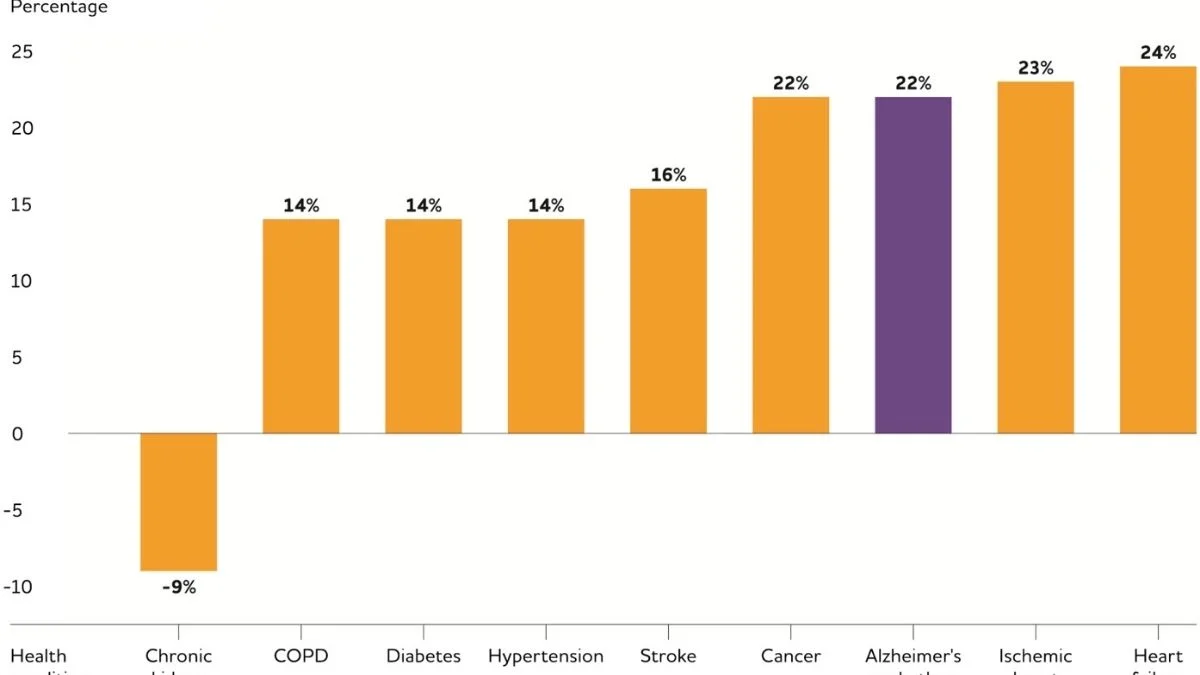According To One Study, Up To 18% Of adults Over The Age Of 60 Have Early Stages Of Alzheimer’s And Cognitive Problems.

According to a new report, 6.5 million Americans have Alzheimer’s disease, and more than one in every ten older adults has early-stage memory or cognitive problems.
According to a report released Tuesday by the Alzheimer’s Association, 12-18 percent of adults aged 60 and up have “mild cognitive impairment,” a category of memory loss or cognitive problems that may be a precursor to dementia or caused by other medical or behavioral issues.
Forgetting a conversation or misplacing items are common symptoms of memory loss. According to the report, it can also manifest as difficulty thinking during a conversation, navigating a once-familiar location, or completing daily tasks such as paying a bill.
Carrillo advises seniors to discuss memory loss or cognitive problems with their primary-care doctors because such lapses are often unrelated to dementia and can be reversed with behavioral changes or medication. Such lapses may be reversible through better sleep habits or medication for depression or anxiety.
Nonetheless, a survey of 801 primary care doctors found that 72 percent had difficulty distinguishing between normal ageing and cognitive impairment. Furthermore, 60% of doctors were unfamiliar with using tests such as spinal taps or brain scans to measure disease markers such as amyloid or tau – both of which are hallmarks of Alzheimer’s disease.
Many doctors are hesitant to prescribe Aduhelm despite public pressure from drug companies and their allies. Last year, the Food and Drug Administration granted accelerated approval based on two studies that produced mixed results. The FDA’s outside expert advisers advised against approval; three advisers resigned when the drug was approved anyway.
“It’s frustrating for everyone,” said neurologist Dr. Keith Vossel, director of UCLA’s Mary S. Easton Center for Alzheimer’s Disease Research. “We simply need to be patient. I believe it is too soon for widespread use until we have more information about the efficacy and safety of these drugs “Aduhelm’s

Vossel stated that UCLA does not prescribe Aduhelm, despite the fact that the drug is used in clinical trials. After Vossel explained the mixed clinical trial results and potential side effects such as brain swelling to patients and caregivers who requested prescriptions, they became less enthusiastic. According to him, nearly everyone agreed that the drug was not right for them.
Nonetheless, Vossel believes it would be a mistake for Medicare to restrict coverage for other amyloid-targeting drugs to post-approval clinical trials.
Previous research has shown that at least half of people with Alzheimer’s disease or other forms of dementia do not have their condition recognised or addressed before they die, according to Dr. Pierre Tariot, director of the Banner Alzheimer’s Institute in Phoenix.








